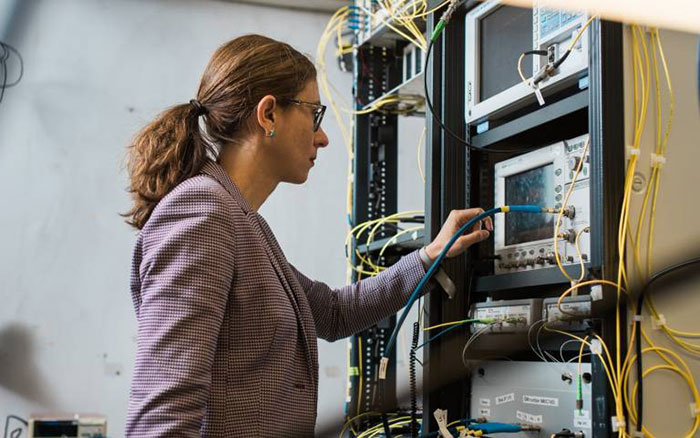Researchers at University College London (UCL) have set a new world record internet speed using a technology that makes use of existing optical fibre cabling. The headlining speed achieved was 178Tbps (or 178,000,000 megabits a second), which is fast enough to "download the entire Netflix library in less than a second," according to a UCL blog post. This headline speed is a fifth faster than the previous record set by a team in Japan and approx twice as fast as the best internet connections available today.
Importantly, the researchers used existing fibre optic cabling for their world record 178Tbps data transfers. Upgrading such cables can cost up to £450,000 a kilometre in urban areas, so naturally developments seek not to replace them. However, there would be a cost to upgrade the amplifiers which are located at intervals along such cabling (every 40 to 100km) - at about £16,000 per amplifier.
To facilitate the speed boost the researchers at UCL, lead by Dr Lidia Galdino and working alongside engineers from Xtera and KDDI Research, transmit data over a much widers spectrum of light than typically used nowadays. The UCL blog post explains that "current infrastructure uses a limited spectrum bandwidth of 4.5THz, with 9THz commercial bandwidth systems entering the market, whereas the researchers used a bandwidth of 16.8THz".

Dr Lidia Galdino
For the upgraded system to work the new amplifiers need to boost signal power and maximise speed via new Geometric Shaping (GS) constellations which manipulate phase, brightness and polarisation properties of the light to optimise for data transfers at speed.
Dr Galdino put the speed achievement into perspective, saying that current state-of-the-art cloud data-centre interconnections are capable of transporting up to 35Tbps. She added that such progress was crucial to lower costs and meet future data demands for transformative applications.













